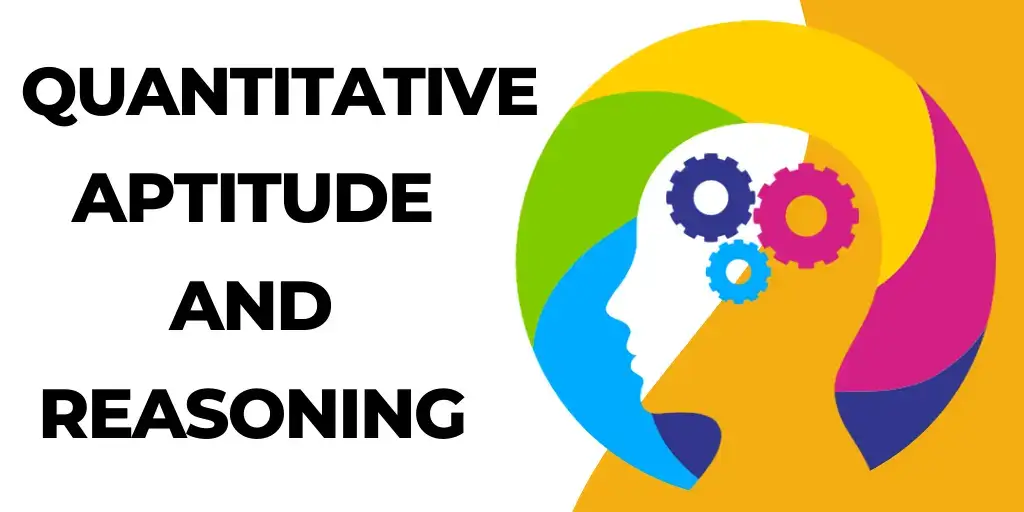Recently updated on May 29th, 2025 at 05:13 am
Quantitative Aptitude and Reasoning are two critical sections in most competitive exams. These areas assess candidates’ numerical, logical, and analytical thinking abilities. Excelling in these sections is essential for scoring high marks and ranking well in competitive exams.
1. Quantitative Aptitude for Competitive Exams

Quantitative Aptitude tests your mathematical and numerical problem-solving skills. The questions evaluate your speed, accuracy, and understanding of mathematical concepts.
Common Topics Covered:
Arithmetic:
- Percentages
- Profit and Loss
- Averages
- Ratios and Proportions
- Simple and Compound Interest
- Time, Speed, and Distance
- Time and Work
- Problems on Ages
Number Systems:
- Divisibility Rules
- HCF and LCM
- Prime Numbers
- Remainders and Modular Arithmetic
Algebra:
- Simplifications
- Linear and Quadratic Equations
Geometry and Mensuration:
- Perimeter, Area, and Volume
- Properties of Triangles, Circles, and Polygons
Data Interpretation:
- Bar Graphs
- Pie Charts
- Line Graphs
- Tables
Advanced Topics (in some exams):
- Probability
- Permutations and Combinations
- Statistics (Mean, Median, Mode, Variance)
Importance in Competitive Exams:
- Used in exams like CAT, GRE, GMAT, SSC, UPSC, IBPS, and State PSCs.
- Requires practice to solve problems quickly and accurately under time constraints.
2. Reasoning for Competitive Exams

Reasoning tests assess your ability to think logically, analyze patterns, and solve abstract problems. It is divided into Verbal Reasoning and Non-verbal Reasoning.
Common Topics Covered:
Verbal Reasoning:
- Syllogisms
- Blood Relations
- Coding and Decoding
- Seating Arrangements (Linear and Circular)
- Direction Sense Test
- Statements and Conclusions
- Puzzles
Non-verbal Reasoning:
- Pattern Completion
- Mirror and Water Images
- Paper Folding and Cutting
- Figure Series
- Odd One Out
Logical Reasoning:
- Assumptions and Arguments
- Cause and Effect
- Decision Making
- Statement Analysis
Analytical Reasoning:
- Data Sufficiency
- Logical Puzzles
Importance in Competitive Exams:
- Tests logical thinking rather than theoretical knowledge.
- Essential for exams like Banking (IBPS, SBI), SSC, CAT, CLAT, and other government or management entrance tests.
How to Prepare for Competitive Exams?
Understand the Exam Pattern:
- Familiarize yourself with the weightage of Quantitative Aptitude and Reasoning in the exam syllabus.
Practice Regularly:
- Solve mock tests, previous year’s question papers, and time-bound quizzes.
Focus on Time Management:
- Develop techniques to solve problems quickly, such as shortcuts for calculations.
Improve Logical Thinking:
- Practice puzzles, brain teasers, and reasoning exercises daily.
Use Resources:
- First, refer to standard preparation books like R.S. Aggarwal’s Quantitative Aptitude and Verbal and Non-Verbal Reasoning.
- Moreover, mastering these sections can significantly boost your competitive exam scores and, consequently, help you stand out among other candidates
Conclusion
In competitive exams, Quantitative Aptitude and Reasoning are pivotal sections that test your problem-solving skills, numerical aptitude, and logical thinking. Moreover, excelling in these areas requires regular practice, a clear understanding of concepts, and effective time management.
Furthermore, by mastering these sections, you can significantly improve your chances of success, since they form the foundation for evaluating your analytical and decision-making abilities—skills that are crucial in both academic and professional settings. Ultimately, consistent effort, strategic preparation, and familiarity with exam patterns are key to achieving a high.







Whitney Bickes
November 25, 2024Somebody essentially assist to make seriously posts I might state. That is the very first time I frequented your web page and so far? I surprised with the research you made to make this actual publish amazing. Excellent task!